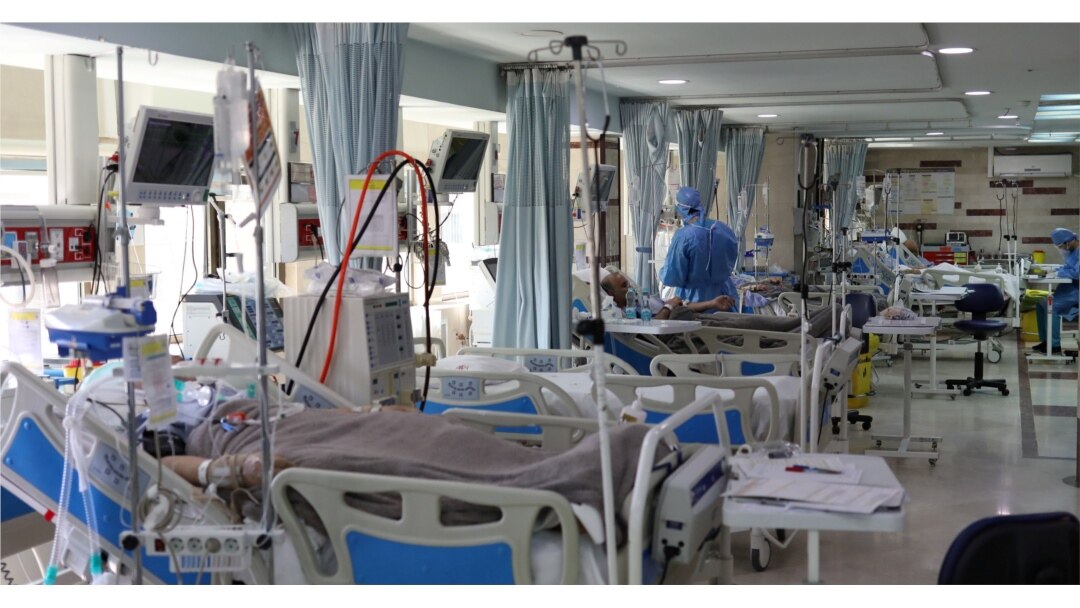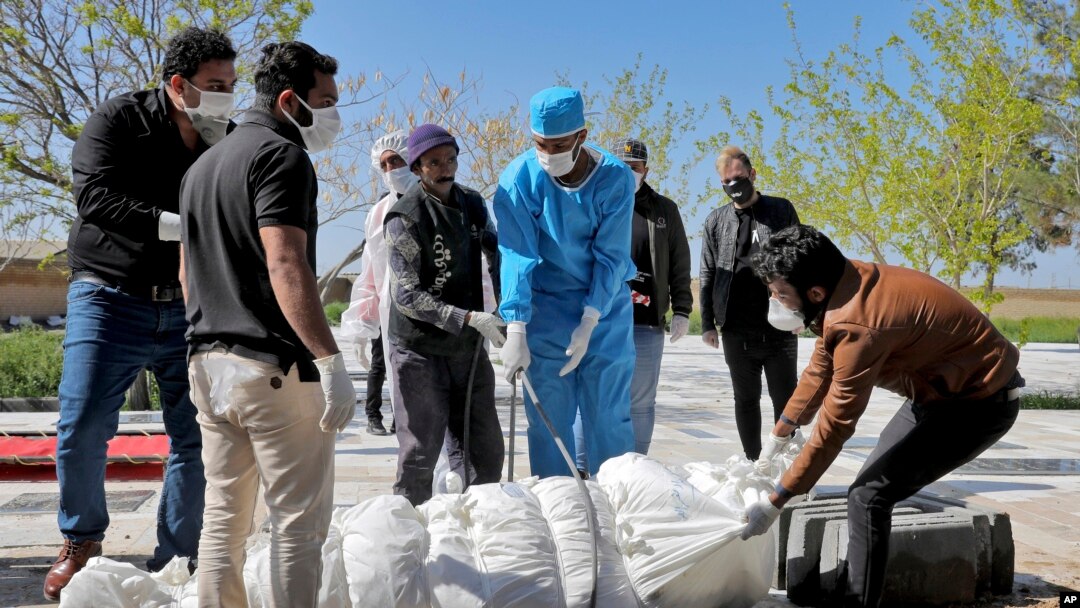Amnesty International says it believes more than 30 prisoners have been killed by Iranian security forces amid rioting over fears of contracting the coronavirus.
Thousands of inmates in at least eight prisons around Iran have staged protests in recent days over their fears about potentially contracting the virus while incarcerated, sparking "deadly responses" from prison officers and security forces, the London-based human rights watchdog said on April 9.
Citing credible sources including relatives of the prisoners, the statement said live ammunition and tear gas were used against protesters at several correctional facilities, killing around 35 prisoners and injuring hundreds of others.
In at least one prison, those taking part in protests were beaten by security forces, possibly leading to the death of an inmate, it added.
"It is abhorrent that instead of responding to prisoners’ legitimate demands to be protected from COVID-19, Iranian authorities have yet again resorted to killing people to silence their concerns," said Diana Eltahawy, Amnesty International's deputy regional director for the Middle East and North Africa.
Eltahawy said security forces should immediately be "instructed to cease the use of unlawful lethal force, and to refrain from punishing prisoners calling for their right to health."
She also called for an independent investigation into "the torture and deaths in custody."
About 100,000 prisoners have been granted temporary release in the country, one of the hardest hit by the COVID-19 outbreak. Health officials said on April 9 that 66,200 people had tested positive for the virus, with some 4,110 deaths recorded.

Patients with coronavirus disease (COVID-19) lie in beds at the ICU of Sasan Hospital, in Tehran, Iran, March 30, 2020. Credit: WANA (West Asia News Agency)/Ali Khara
Iranian officials have been criticized for their slow initial response to the pandemic, and experts have been skeptical about the veracity of official figures released by the authorities, who keep a tight lid on the media.
On April 9, Supreme Leader Ayatollah Ali Khamenei suggested that mass gatherings such as collective prayers might be banned during the Muslim fasting month of Ramadan to help stop the spread of the virus.
"We are going to be deprived of public gatherings of the month of Ramadan.... In the absence of these meetings, remember to heed your prayers and devotions in your lonesomeness," Khamenei said in a televised speech.
At the same time, President Hassan Rohani sent a conflicting signal, saying the country's economy should slowly begin to open back up beginning this weekend, leading to worries the nation could see a second wave of infections.
The Islamic republic's economy is suffering under intense U.S. sanctions after President Donald Trump unilaterally withdrew from Tehran's 2015 nuclear deal with world powers.
Ramadan is set to start in the last week of April and last through most of May.


